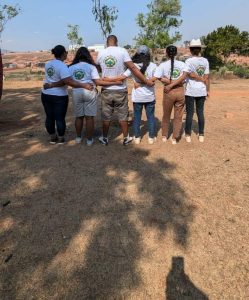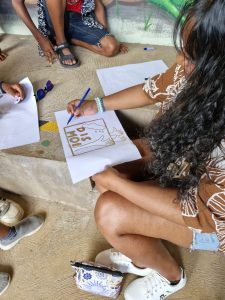Our WORK
DIS-MOI’s primary tool is advocacy and campaigning. Advocacy campaigns are the driving force of the progress of Dis-Moi. The organisation makes it a duty to call attention and take appropriate stands whenever there are issues pertaining to human rights violations. Advocacy is usually done by way of communiques, press articles or even conferences on media and social media platforms.
Another key role of DIS-MOI is advocating for the ratification and domestication of human rights treaties by engaging in lobbying campaigns with governments.
Our objectives are to identify solutions, coordinate efforts of the masses, and work to bring changes that would make our region a better place. To ensure advocacy of various human rights issues, several commissions are present to handle each.
DIS-MOI’s work is centered upon different activities and different commissions work on different themes to promote specific aspects of human rights:
– Human Rights & Citizenship Education: Organising workshops, training sessions, and awareness campaigns tailored to local concerns.
– Youth engagement: Supporting Dis-Moi Zenn initiatives, empowering young leaders to advocate for governance, peace, and stability.
– Legal assistance: Offering free or low-cost legal advice, with a focus on marginalized and vulnerable groups.
– Community projects: Collaborating with local partners to address pressing issues such as gender-based violence, migrant rights, and environmental sustainability.
Role of Government in abiding by UN convention
It is crucial for a government to abide by United Nations conventions as they establish a framework for promoting international cooperation, peace, and human rights. Adhering to these conventions ensures that a country aligns with global norms, enhancing its credibility and fostering positive diplomatic relations. By honoring UN conventions, governments demonstrate a commitment to safeguarding the well-being of their citizens and the global community, promoting fairness, justice, and sustainable development. These conventions cover a broad spectrum of issues, including human rights, environmental protection, and conflict resolution, making compliance not only a legal responsibility but also a moral obligation that supports stability and progress on both national and international levels.
Role of NGOs in the Ratification & Domestication of Human Rights
NGOs play a vital role in advocating for the ratification and domestication of human rights treaties by engaging in lobbying campaigns with governments. Through these campaigns, NGOs raise awareness about the importance of aligning national laws with international human rights standards, often presenting compelling evidence of the benefits for both citizens and the country as a whole. They mobilize public support, engage in dialogue with policymakers, and provide technical expertise to ensure that the treaties are not only ratified but also effectively implemented within national legal frameworks. By lobbying governments, NGOs help to hold them accountable, pushing for reforms that protect vulnerable populations, enhance social justice, and promote equality. Their efforts ensure that international human rights commitments are more than just formal agreements but are translated into tangible, enforceable laws that improve the lives of individuals.
Importance of State & Shadow Reports for UN Committees
Providing state reports and shadow reports to the UN committees is essential for ensuring transparency, accountability, and the protection of human rights. State reports offer an official account of a country’s progress in implementing international conventions, allowing UN committees to assess compliance with global standards and make recommendations for improvement. Meanwhile, shadow reports, typically submitted by non-governmental organizations (NGOs) and civil society groups, offer an independent perspective on a country’s human rights situation, often highlighting gaps or discrepancies that the state report may overlook. Together, these reports provide a more comprehensive and balanced view of the state’s actions and commitments, helping to foster greater accountability and push for meaningful reforms. They play a critical role in strengthening the implementation of human rights standards and ensuring that states fulfill their obligations to their citizens and the international community.
IGO/HGA coordination at DIS-MOI
Through the IGO/HGA coordination, DIS-MOI ensures that lobbying campaigns regarding ratification and domestication of human rights treaties are held with government. Shadow reporting is conducted for UN and AU bodies on human rights situations. Under the Inter-government Organisations/Home Government Approach coordination, DIS-MOI ensures that it works in collaboration with intergovernmental organisations such as the various charter-based and treaty-based bodies of the United Nations and the African Union. It also collaborates with the governmental entities such as Ministries and National Human Rights Institutions(for Mauritius).

Commission for the Rights of Older People
Commission for Children’s Rights
Commission against Torture
Commission for Economic Social Cultural Rights
Commission for Environmental Rights
Commission for the Rights of Migrant workers
Commission for the Rights of LGBTQ+
Commission for Women’s Rights
Commission for the Rights of people with disability

